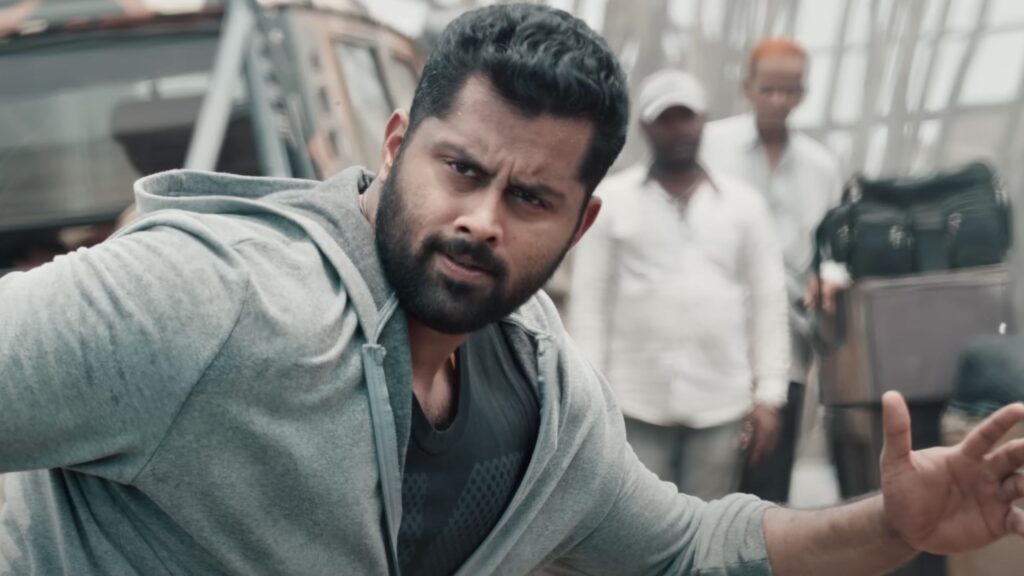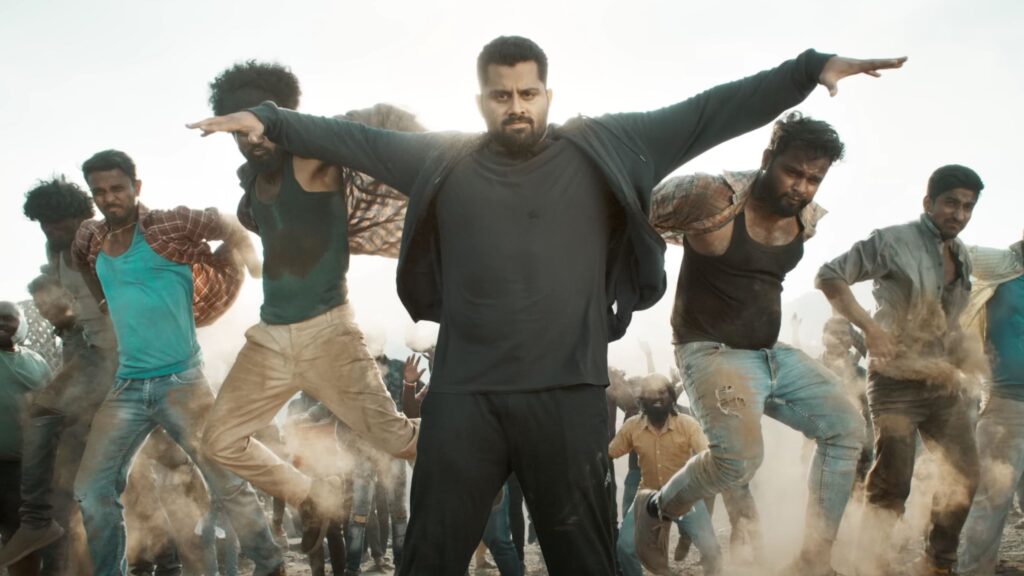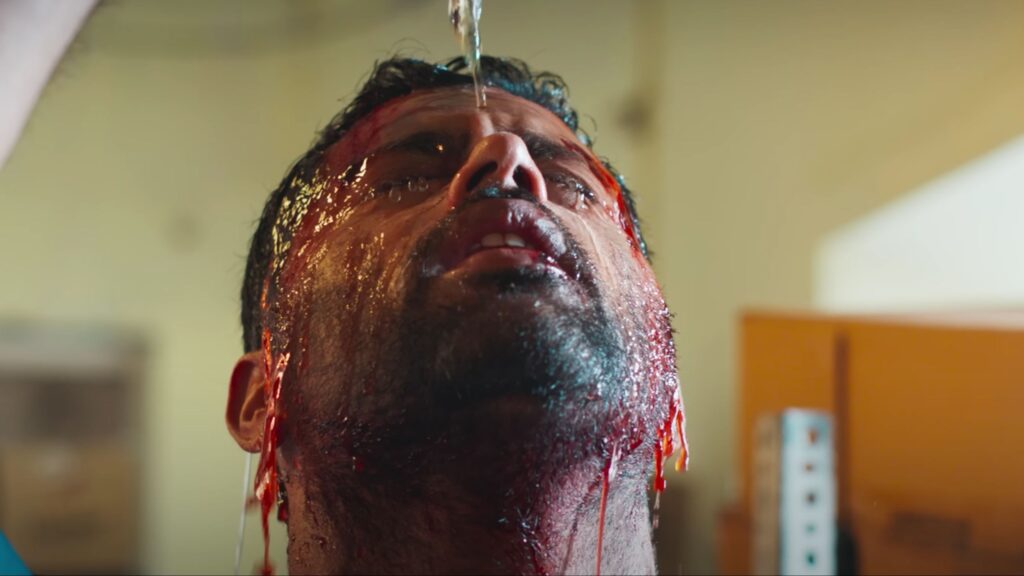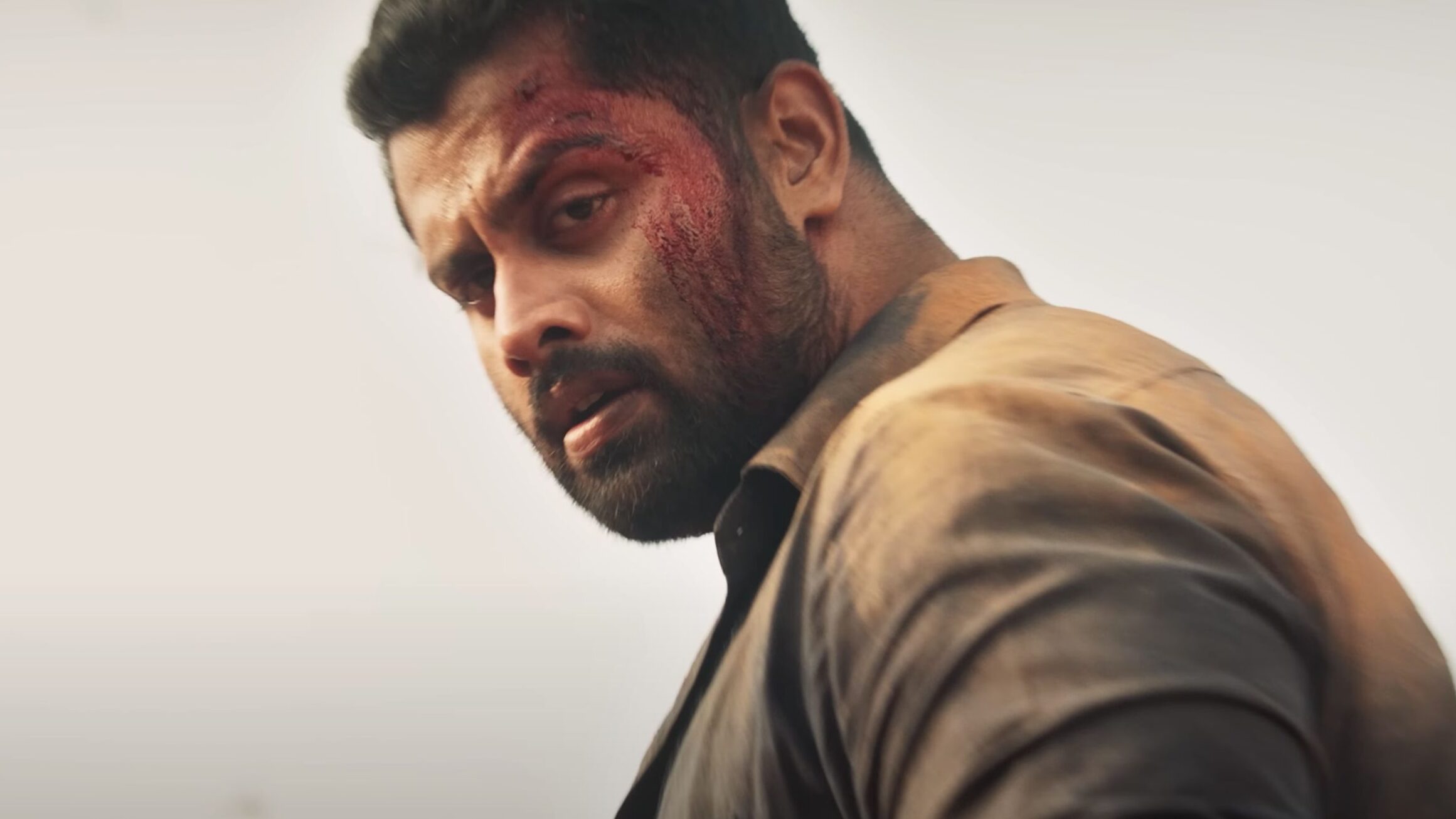Abhishek Ambareesh, the son of Rebel Star Ambareesh, made his debut as a leading actor in the film industry through the 2019 release “Amar.” There was great anticipation for his return to the big screen, especially with the announcement of his collaboration with director Duniya Suri in the film “Bad Manners.” Duniya Suri, renowned for establishing a unique genre of his own, brings his distinctive appeal to “Bad Manners” as well. The movie seamlessly combines offbeat crime drama with mass appeal, unveiling an underworld of criminal activities featuring characters with eccentric names. The film boasts a nonlinear screenplay and the captivating musical touch of Charan Raj, continuing the signature elements that define Duniya Suri’s cinematic style.

After the passing of his father, Rudresh (Abhishek Ambareesh) secures a position in the police force. However, when he misplaces his service gun at a crime scene, his senior officer (Sharath Lohitashwa) issues an ultimatum: find the missing weapon or face suspension. Rudra journeys to Govardhana Ghada, known as Goda, a hub for illicit weapon production, in a quest to recover his lost firearm. As Rudra delves deeper, he realizes that his ‘bad manners’ have triggered severe consequences, forming the crux of the film’s plot.

Abhishek Ambareesh shines with his captivating on-screen presence, showcasing nuanced mannerisms and flawlessly executed action sequences. The lagori fight with guns, stands out as a perfect example of mass action. Special mention goes to Abhishek Ambareesh’s stylist for creating multiple looks that highlight his charismatic appearance. Although there isn’t a central female lead, Rachita Ram as Veena, Rudra’s fiancée, and Tara in a cameo role as Rudra’s mother add noteworthy elements.

In a Sukka Suri film, the list of antagonists is extensive, with Maghai and Phoenix standing out. The Don Uncle from Tagaru, is Maharaj, possesses a unique character, blurring the lines between sage, don, Gandhian, teacher, or city owner. Senior artists Umesh takes on the endearing role of Kubera, while Dattanna assumes the character of a security guard, and Kuri Prathap contributes a dash of humor. Suri’s signature criminals, including Gunnies Ravi, Sholay Babu, Keshappa, Talwar Tatayya, Silk, and others, populate the film. Quirky location names like Boodigudda, Gantekamba, Handi Halla, Goda, and more add to the distinctive Suri universe, posing a constant challenge for viewers to remember and connect as the story unfolds.

Sukka Suri’s approach of presenting raw, true-to-life films serves as an eye-opener, introducing viewers to the underworld. Suri is lauded for executing this approach exceptionally well. Despite the film’s unique universe, enhancing emotional engagement by giving the protagonist Rudra a more defined and compelling purpose would have been beneficial. Similar to Suri’s other films, the initial part of “Bad Manners” delves into various elements, initially perplexing the audience but gradually bringing clarity in the second half, allowing them to piece together and comprehend the connections.

“Bad Manners” plunges us into the realm of Sukka Suri, unveiling a captivating fusion of cinematography, music, songs, editing techniques, art, and costume design. The collective efforts of each department synergize to breathe life into authentic characters, drawing us into the compelling world of crime. For a firsthand understanding of what “Bad Manners” means according to Duniya Suri, experience the film in theaters, one can hear it directly from the Young Rebel himself.














